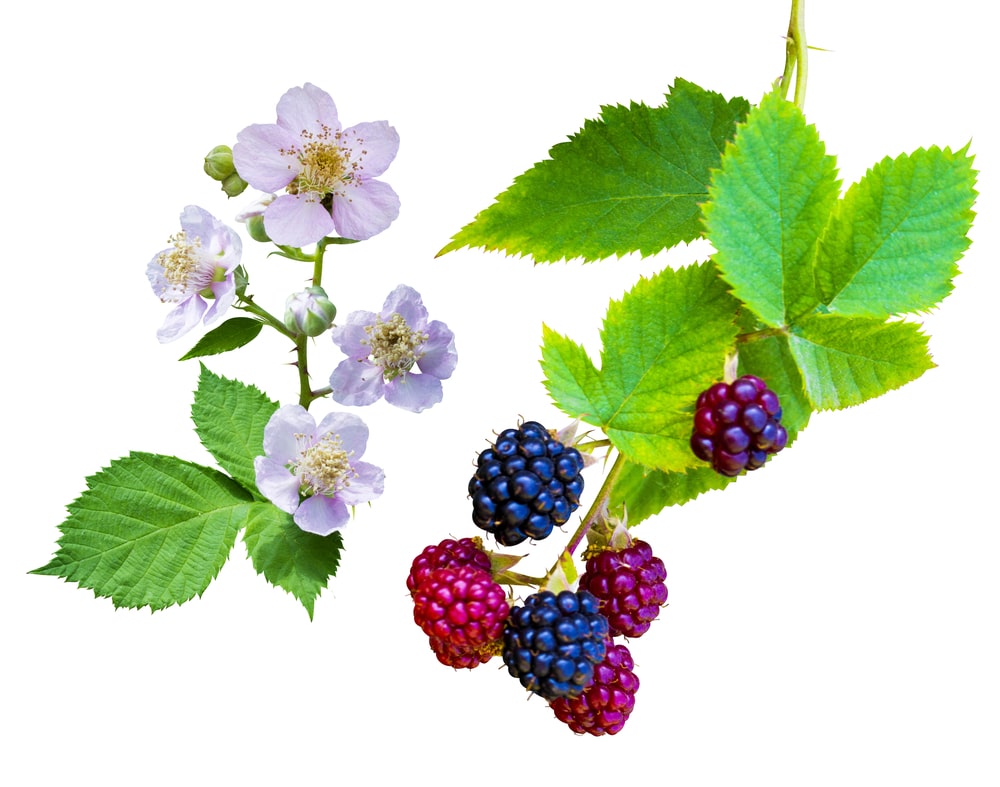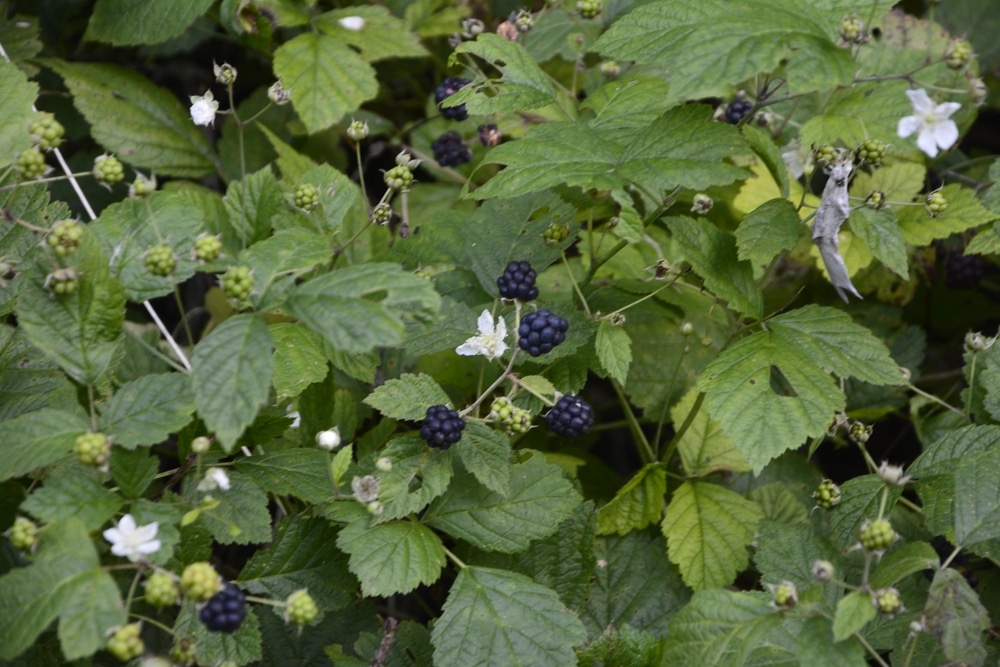The blackberry bush is a fruit-bearing wildflower shrub that stands approximately 3 to 6 feet tall. The bush itself is a mass of tangled branches with small, sharp thorns, and it produces small white or pink flowers in the spring. Its foliage is made up of dark green, glossy leaves – but its foliage is not what we’re interested in, is it?
One of the central features of the blackberry bush is, of course, its fruit. The berries are round and black, sitting atop its prickly and sturdy branches. And while the bush and its fruit are certainly enough to bring that “summertime” vibe – we’re really interested in when these berries are ripe and ready to pick.
When Do Blackberries Produce Fruit?

If you’ve recently added some blackberry bushes to your garden or thinking of adding some – you’re likely wondering when these bushes will start to produce fruit.
Also referred to as brambles, you can expect these bushes to produce fruit for about 3-4 weeks (21-28 days) anytime between June all throughout August. July is often referred to as the prime season for blackberry picking, but it may also extend until September.
The fruit production of blackberry bushes is also affected by the climate. The above-mentioned works for the most part of the United States. However, blackberry bushes in the Pacific Northwest may produce fruit sometime around the late summer and last right before the first frost during the autumn season.
Why Isn’t my Blackberries Producing Fruit?
It’s your first bush, and you’ve probably been waiting impatiently for those berries to appear – but what if they’re not? If your blackberry bush is not producing fruit, there are a few things you can check.
The Plant is Too Young
Contrary to popular belief, most blackberry bushes don’t immediately produce fruit, especially in their first year of growth. Younger blackberries focus on their root system and growing their canes (the stems that produce the berries). While it’s not impossible for a first-year bush to produce berries, it’s more likely that it won’t.
Instead, expect the fruits to emerge in their second year and for the plant to be fully mature by its third year. Once your blackberry bush is about three years old, it should produce berries continuously for several years.
Poor Soil Conditions
Although blackberry bushes aren’t difficult to grow and care for, they have specific soil requirements. These include well-drained soil with a neutral to slightly acidic pH level.
Adding compost to your soil before planting your blackberry bush also helps improve the soil’s quality. One of the best things about using compost is that they’re relatively easy to create, and you can make do with whatever organic matter you have on hand, including kitchen scraps.
Depending on the type of blackberry bush you have and your region’s soil conditions, you may also supplement your soil with fertilizer simply to give your bush a little boost and provide the nutrients the soil lacks.
Ideal Temperatures Not Met
For most varieties, blackberry bushes often thrive in USDA zones 6-8. Although some varieties can tolerate colder temperatures, blackberries generally only need a few winter chill hours (300 on average) for the plant to set fruit.
This means that for these lovely bushes to produce plum-sized berries, their ideal growing temperatures need to be under 45 degrees for at least 300 hours for the duration of the entire year.
Pests and Diseases
Rarely, blackberry bushes may also fail to produce fruit because of pests and diseases. Pest such as aphids and cane borers can eat blackberry leaves, while root rot, and powdery mildew are common fungal infections. You can prevent all of these with proper care and maintenance.
Plated Too Close to Each Other
If you have more than one blackberry bush, make sure that they’re not planted too close to each other. These bushes are known to be quite territorial and may fight for resources if they’re growing too close together. Planting them about three feet apart should (for most varieties) will give each plant enough room to grow and produce fruit without competing for nutrients from surrounding plants.
Final Thoughts
Between the months of June to September, blackberry bushes produce fruit that is perfect for pies, jams, and other pastries. Although the plant takes a few years to mature, once it does, it should produce fruit continuously for several years.
Take note that these plants will seldom produce fruit in their first year – so don’t worry if you don’t see any berries yet. Just give it some time, and soon enough, you’ll be harvesting fresh blackberries right in from your yard.
